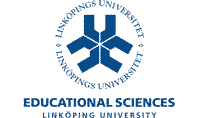
|
Visa svensk kursplan |
|
COURSE CATEGORY Single Subject Course MAIN FIELD OF STUDY Pedagogik - PEA SUBJECT AREA |
COURSE CODE | 917A01 |
• to describe the importance of the natural environment for learning
• to demonstrate knowledge of the history of outdoor education and its philosophical and pedagogical background.
Central concepts that are emphasised are: pragmatism, constructivism, situated learning, reform and learning by doing. The course also elucidates the connection between cognitive research and neuropedagogy. Similarly, a survey is provided of earlier traditions in the field, of theoretical and practical educational ideals, the difference between theory and practice in the modern school as well as of educational philosophy traditions concerning questions of the nature of reality.
Students failing an exam covering either the entire course or part of the course two times are entitled to have a new examiner appointed for the reexamination.
Students who have passed an examination may not retake it in order to improve their grades.
Degree in teacher training of at least three years, e.g. a bachelor’s degree or the equivalent. Documented knowledge of English equivalent to Engelska B/Engelska 6, i.e. English as native language or an internationally recognized test, e.g. TOEFL (minimum scores: Paperbased 575 + TWE-score 4.5, internetbased 90 TWE-score 20), IELTS, academic (minimum score: Overall band 6.5 and no band under 5.5), or equivalent.
Dahlgren, L.O., Szczepanski, A. (1997) Outdoor Education – Literary education
and sensory experience. Linköping University (63 p) 15/9
Dewey, J. (1938). Experience and education. New York: The Macmillan
Company. ISBN 0684838281 5/10
Higgins, P., Nicole, R. (2002) Outdoor Education - Authentic Learning in the
Context of Landscapes. Volume 2 ISBN 91-7871-979-8- (55p)
Vol 2 Kisa Sweden ISBN 91-631-2904- 3 (93 p) 20/9
Lagerlöf, S. The wonderful adventures of Nils. (You can find this one on the web. Or in the library) 17/10
Lindgren, A, ( ) Ronja, the robbers daughter. (The book or the film) 4/10
Sandell, K., Öhman, J., Östman. (2005) Education for Sustainable Development.
Studentliteratur, Lund. ISBN 91 4403377-X (250 p) ?
Sobel, D. Beyohd Ecophobia: reclaiming the heart in Nature Education. The Orion Society. Great Barrington, MA. V39 KJ ?
Wertsch, J.V. Del Rio, P. & Alvarez, A. (eds.) (1995). Sociocultural studies of
mind. Cambridge: Cambridge Univ. Press. 27/9
Some articles and unprinted material will be handed out at lectures and seminars.
Reference:
Donaldson, G. E., Donaldson, L. E. (1958). Outdoor Education: A definition.
Hammerman, D.R., Hammerman, W.M., Hammerman, E.L. (2001). Teaching in
the outdoors (5th ed.). Danville, IL: Interstate Publisher. ISBN 0813431808
Huckle, John, Sterling, Stephen R. (1996) Education for Sustainability, Earthscan Publication, UK, ISBN 1853832561, (236 p)
Journal of Health, Physical Education and Recreation, 29 (17), 63.
Lave, J. & Wenger, E. (1991). Situated learning: legitimate peripheral participation.
Cambridge: Cambridge Univ. Press.
Newton Douglas P. (2000) Teaching for understanding. Routledge, UK,
ISBN 0415227917, (198 p)
Priest, S. (1986). Redefining outdoor education: A matter of many relationship. Journal of Environmental Education, 17(3), 13-15.
Rogoff, B. (1990). Apprenticeship in thinking: cognitive development in social context. New
York: Oxford University Press.
The course is carried out in such a way that both men´s and women´s experience and knowledge is made visible and developed.
|
||||||||||||||||||||||||||||||||||||||||||||||||||||||||||||||||||||||||||||||